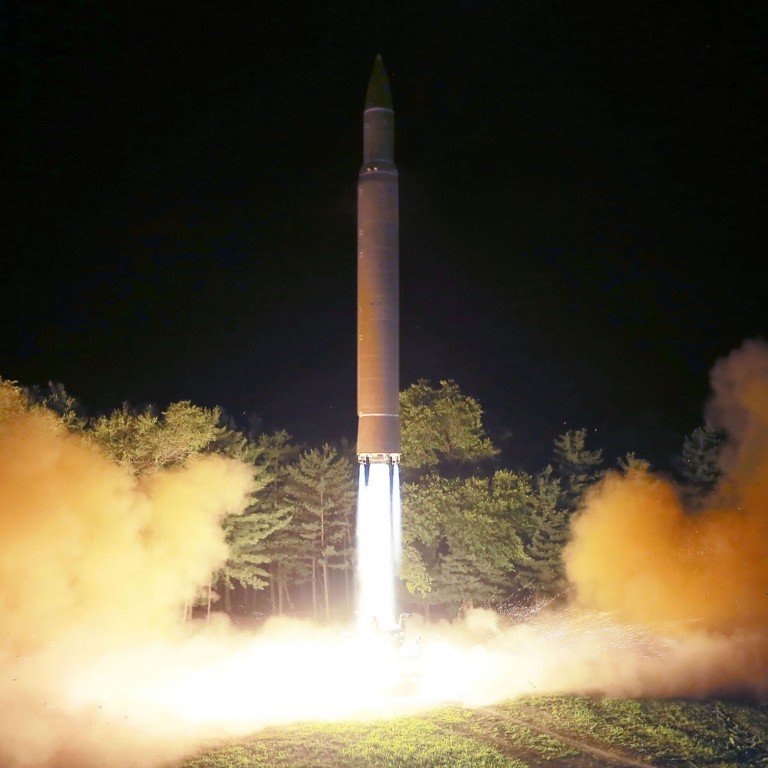New threats such as chemical and biological weapons emerge, adding to global instability, finds peace research institute
Kristin Huang
Published: 7:30pm, 15 Jun, 2020
Updated: 10:25pm, 15 Jun, 2020
The five other countries were India, Britain, Pakistan, Israel and North Korea, the report said, but all increased by fewer than 20 warheads.
“China is in the middle of a significant modernisation and expansion of its arsenal, and India and Pakistan are also thought to be increasing the size of their nuclear arsenals,” the report said.

In China, military vehicles carrying DF-41 intercontinental ballistic missiles pass Tiananmen Square in October, 2019. Photo: Reuters
Despite six countries having increased the number of their nuclear warheads, global inventories continue to decline, according to the report. This is mainly because the owners of the two largest arsenals – Russia and the United States – have decreased their number of warheads, mostly to dismantle retired stocks.
“At the same time, both the USA and Russia have extensive and expensive programmes under way to replace and modernise their nuclear warheads, missile and aircraft delivery systems, and nuclear weapon production facilities,” the report said.
The US has 1,750 deployed warheads – placed on missiles or located on bases with operational forces – and 4,050 reserve warheads or retired warheads awaiting dismantlement. Russia has 1,570 deployed warheads and 4,805 warheads either stored or to be dismantled.

At the start of 2020, nine states – the US, Russia, Britain, France, China, India, Pakistan, Israel and North Korea – had an estimated total of 13,400 nuclear weapons, of which 3,720 were deployed with operational forces. About 1,800 of these were kept in a state of high operational alert, the report said.

India is capable of striking anywhere in China with a nuclear warhead, India’s government has said. Photo: Universalashic
Though six countries had increased their stocks, the combined number of their nuclear warheads was little more than 2,000, less than one-third of Russia’s total stockpile.
Outside nuclear armaments, new threats such as chemical and biological weapons kept emerging, making the world less stable than before, according to the report.
The report also warned of an arms race in outer space. Since 2017, the US has notably declared space to be a domain of war or an area for both offensive and defensive military operations, and France, India and Japan have followed the American lead by announcing dedicating military space units.
Zhou Chenming, a military expert based in Beijing, said the changes in the world’s military build-up signalled an increasingly precarious balance of peace.
“Many countries are now developing their own anti-missile systems that protect countries from being hit by a nuclear warhead, but once the systems are highly developed, it will lead to military adventurism – some countries might take the initiative to attack other nations – and make the world even more dangerous,” Zhou said.
Sign up now for a 50% early bird discount on the 100+ page China Internet Report 2020 Pro Edition, which includes deep-dive analysis, trends, and case studies on the 10 most important internet sectors. Now in its 3rd year, this go-to source for understanding China tech also comes with exclusive access to 6 webinars with C-level executives. Offer valid until 30 June 2020.
No comments:
Post a Comment